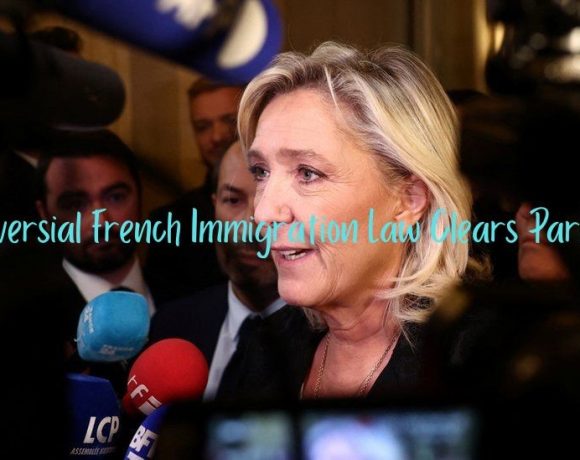
The French parliament has recently passed a more stringent immigration law, culminating months of political negotiations. Both President Emmanuel Macron’s centrist Renaissance party and Marine Le Pen’s far-right National Rally (RN) supported the amended bill, creating a significant majority in the lower house. Despite accusations from the left that Macron made concessions to the far-right, the ruling party’s overwhelming majority rendered support from Le Pen unnecessary. Macron had underscored his reluctance to owe victory to the RN, expressing a preference for a new reading of the bill instead of relying on their backing.
Some key provisions in the new legislation include making it more challenging for migrants to bring family members to France and delaying their access to welfare benefits. These measures aim to address concerns related to immigration and welfare systems. An earlier draft of the bill failed when MPs from the far-left and far-right opposed it for different reasons, showcasing the contentious nature of immigration policy in France.
Human rights groups have strongly criticized the amended law, denouncing it as the most regressive immigration legislation in France in decades. Critics argue that the measures undermine fundamental values, raising concerns about the impact on vulnerable migrant populations. Despite the opposition, the bill received support from conservatives who applauded its firmness and courage in addressing immigration challenges.
While Marine Le Pen’s far-right National Rally welcomed the amended bill, left-wing voices expressed disappointment, accusing Macron of enabling the far-right and signaling a shift in the country’s history and fundamental values. French Communist Party leader Fabien Roussel argued that the legislation, directly inspired by RN’s anti-immigration stance, represented a concerning departure for the republic.
Emmanuel Macron’s centrist Renaissance party lost its majority in parliament in June 2022, leading to challenges in passing legislation. Since then, the government has frequently found itself unable to secure necessary votes in parliament, highlighting the complex political landscape surrounding immigration policy in France.
Picture Courtesy: Google/images are subject to copyright
